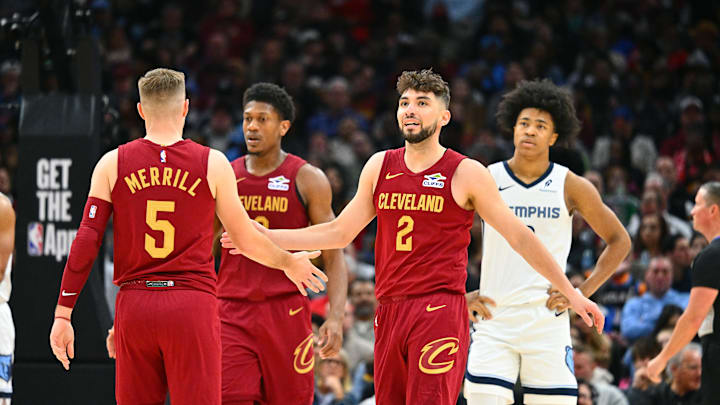The Cleveland Cavaliers are facing an unintended punishment of the NBA's harshest tax penalties in league history.
When the league introduced the new Collective Bargaining Agreement, a new salary tax tier was introduced, dubbed the second apron. The purpose was to prevent teams from spending with no limit to create an unstoppable super team. Essentially, the NBA wanted to prevent another Kevin Durant from joining Steph Curry from happening.
The NBA implemented rules to encourage teams to build contenders exactly like the Cleveland Cavaliers, but they'll be punished anyway.
Although the CBA has certainly forced franchises to second-guess overspending on a top-heavy roster, there are no provisions to protect teams that have invested internally and built a contender in the ways the league hopes. The Cavaliers have become a prime example, entering the 2025 offseason with lingering question marks over the future of All-Star guard Darius Garland and numerous bench contributors.
Last season, the Cavs' bench depth was a critical piece in the 64-win regular season. This summer, though, tax restrictions may force three fan-favorite contributors to exit the franchise and leave Cleveland's depth chart diminished and shallow.
NBA writer Matt Moore detailed how the Cavaliers could go from one of the league's deepest rosters to an unintentionally top-heavy, lopsided mess. With Ty Jerome and Sam Merrill entering unrestricted free agency, Moore suggests the Cavs will have to depart with both players to inch closer to financial freedom and away from the second apron. Jerome, a contender for Sixth Man of the Year this season, is expected to receive a substantial pay raise after signing a two-year, $5 million deal with the Cavs in 2023.
Alongside Merrill and Jerome, though, Moore includes Dean Wade as the third player potentially on the way out. While Wade is under contract for next season, his $6.6 million deal is not fully guaranteed, meaning the Cavs could cut ties or trade Wade to shed salary.
The Cavaliers have a July deadline to make a decision
While NBA free agency opens on July 1, the Cavaliers need to decide their future before the month turns over. When free agency begins, the NBA starts the next fiscal year, meaning the Cavs will leap from a non-tax team to a second apron team overnight. Once those tax restrictions are in place, Cleveland will have little flexibility to make any improvements without first taking significant hits to their core and supporting cast.
If the Cavs believe in this roster and are willing to dig a deep hole with luxury tax, the front office can legally negotiate new contracts with Jerome and Merrill ahead of the July deadline since they are incumbent free agents, but those CBA penalties would cause the Cavs to incur a stiff tax penality on top of each player's salary. For Jerome, signing a new contract with the Cavaliers also means he ignores the potential to sign a larger deal with a rival suitor, making an early deal unlikely. Once the July deadline hits and the Cavaliers are still over the second apron, they may have no choice but to shed salaries to maneuver for the future.
The threatening CBA restrictions were not meant to limit teams from investing in players already present, but those generalized and widespread rules will nonetheless punish the Cavaliers this offseason. For the same reasons, Cleveland has already been rumored to show a willingness to trade Garland and Jarrett Allen, two All-Star talents who helped establish the modern Cavs era.
With drastic changes potentially on the horizon, the Cleveland Cavaliers may become an example for the NBA, hopefully igniting discussions to amend the current CBA. Unfortunately, reactive amendments will not bring Jerome and company back to Cleveland or guarantee the Cavs can afford to pay the entire core four without being punished for it.
